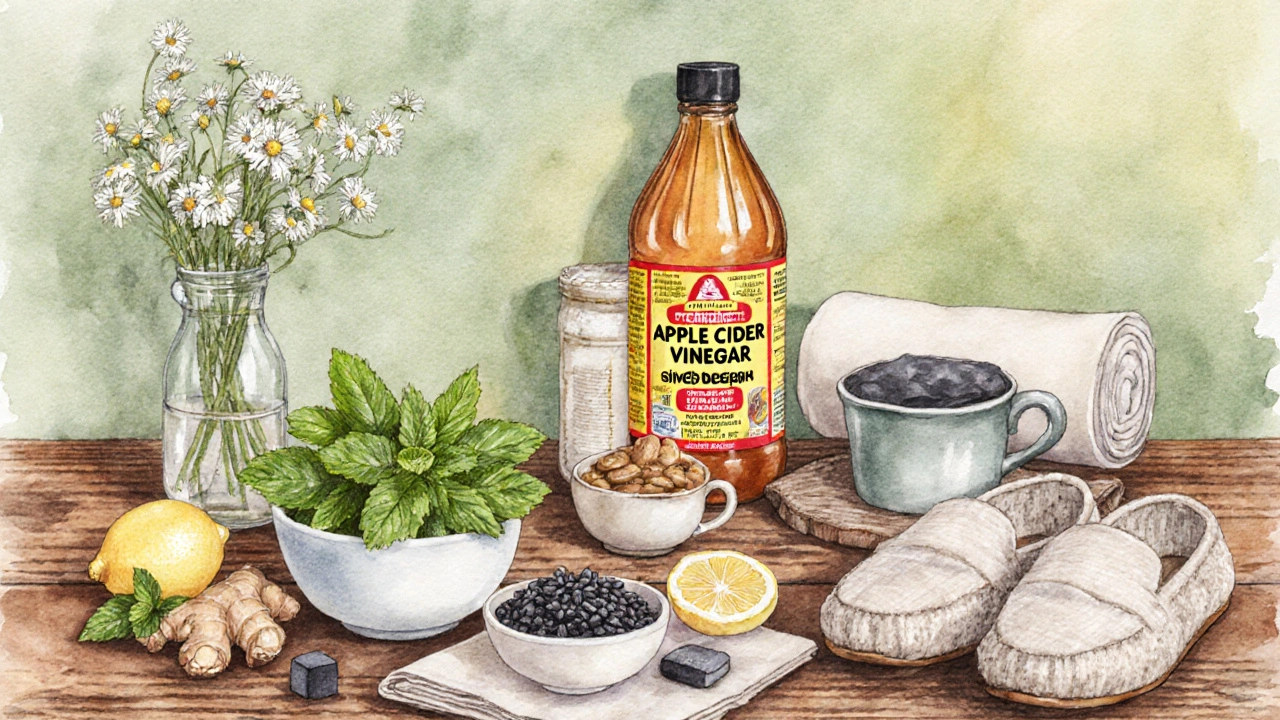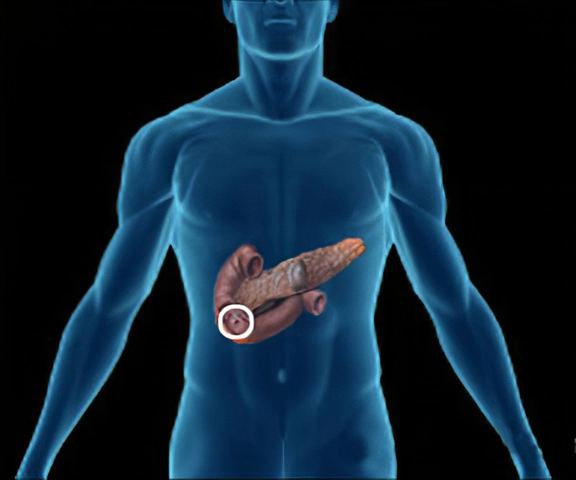Meteorism Relief Remedy Selector
Your Recommended Remedies
Key Takeaways
- Meteorism is excess gas in the gut that causes uncomfortable bloating.
- Simple kitchen items like peppermint, ginger, and fennel can calm symptoms fast.
- Stay hydrated, move gently, and watch trigger foods to prevent recurrence.
- Most remedies are safe, but people with acid reflux or gallbladder issues should adjust doses.
- Combine two or three methods for the quickest relief.
Home remedies for meteorism can soothe that uncomfortable belly puff. Meteorism is the medical term for excess gas and bloating that builds up in the intestines, often after a heavy meal or carbonated drink. While over‑the‑counter antacids work, many prefer natural approaches that cost pennies and have few side effects. Below you’ll find ten proven home tricks, the science behind them, and practical tips to fit them into a busy day.
What Causes Meteorism?
Understanding the enemy helps you defeat it. Gas forms when:
- Fermentation of undigested carbs by gut bacteria (think beans, cabbage, onions).
- Swallowing air while chewing gum, sipping through a straw, or talking while eating.
- Carbonated drinks release CO₂ in the stomach.
- Food intolerances, such as lactose or fructose malabsorption.
- Slow gastrointestinal motility, often linked to stress or a sedentary lifestyle.
When any of these happen, the intestines stretch, leading to that tight, knotted feeling.
Why Home Remedies Work
Most natural options target one or more of the root causes:
- Relaxing the intestinal wall - herbs like peppermint and fennel contain menthol or anethole, which act as smooth‑muscle relaxants.
- Speeding up digestion - ginger stimulates gastric secretions, helping food move faster.
- Balancing gut flora - probiotic yogurt introduces friendly bacteria that compete with gas‑producing microbes.
- Neutralizing acidity - apple cider vinegar can improve stomach pH, reducing fermentative bursts.
- Physical displacement - light walking or a warm compress physically moves trapped bubbles toward the exit.
Because the mechanisms are gentle, side effects are rare, making them ideal for daily use.
1. Peppermint Tea
Peppermint is a mint family herb whose oil contains menthol, a natural antispasmodic. Brew a cup by steeping one teaspoon of dried leaves in hot water for 5‑7 minutes. Sip slowly after meals. Menthol relaxes the colon’s smooth muscle, allowing trapped gas to pass more easily. If you’re prone to acid reflux, opt for a lower dose or try a peppermint capsule instead of tea.
2. Ginger Root
Ginger is a rhizome rich in gingerols that stimulate gastric motility. Slice a thumb‑size piece, boil in two cups of water for 10 minutes, and add honey if desired. Drink 1‑2 cups daily. Studies from 2023 show ginger reduces post‑meal bloating by up to 30% in healthy adults.

3. Fennel Seeds
Fennel seeds contain anethole, which relaxes the intestinal tract and reduces gas formation. Chew half a teaspoon after each meal, or steep a tablespoon of seeds in hot water for a soothing tea. A 2022 clinical trial reported a 25% drop in bloating scores after a two‑week fennel regimen.
4. Chamomile Infusion
Chamomile is a daisy‑like flower known for its anti‑inflammatory and antispasmodic properties. Use one tablespoon of dried flowers per cup of hot water, steep for 5 minutes, and enjoy before bedtime. Its calming effect also helps lower stress‑induced gut motility issues.
5. Warm Lemon Water
Warm water with freshly squeezed lemon juice (½ lemon per glass) jump‑starts digestion. The citric acid encourages bile flow, which breaks down fats more efficiently, limiting fermentation. Drink first thing in the morning on an empty stomach for best results.
6. Apple Cider Vinegar (ACV)
Apple Cider Vinegar contains acetic acid, which can improve gastric pH and aid enzymatic breakdown. Mix one tablespoon of raw, unfiltered ACV with a cup of warm water and a pinch of honey. Consume before meals to reduce gas‑producing bacterial activity.
7. Probiotic Yogurt
Probiotic Yogurt supplies live cultures like Lactobacillus and Bifidobacterium that outcompete gas‑forming microbes. Aim for a serving (about 150g) with at least 1billion CFU per gram. Regular intake re‑balances gut flora, leading to fewer bloating episodes over weeks.
8. Activated Charcoal
Activated Charcoal is a porous carbon that adsorbs gas‑producing toxins in the intestines. Take a single 250mg tablet with a glass of water after a heavy meal. Limit use to occasional relief, as it can also bind beneficial nutrients.

9. Gentle Walking
Simply standing up and taking a 10‑minute stroll after eating promotes peristalsis, moving gas along the digestive tract. Even a slow pace around the house helps; studies show a 15‑minute walk cuts bloating time in half.
10. Warm Abdominal Compress
Apply a warm (not scorching) heating pad or a hot water bottle to the belly for 10‑15 minutes. Heat relaxes the smooth muscle and helps gas bubbles merge and exit. Combine with deep breathing for added benefit.
Quick Comparison of the Remedies
| Remedy | Main Benefit | Typical Use | Precautions |
|---|---|---|---|
| Peppermint Tea | Smooth‑muscle relaxation | 1 cup after meals | Avoid if you have severe GERD |
| Ginger Tea | Speeds digestion | 1‑2 cups daily | High doses may thin blood |
| Fennel Seeds | Reduces gas formation | ½ tsp chewed post‑meal | Pregnant women should limit |
| Chamomile | Anti‑inflammatory, calming | 1 cup before bed | Allergy if you’re sensitive to ragweed |
| Warm Lemon Water | Boosts bile flow | Morning on empty stomach | Tooth enamel erosion - rinse afterward |
| Apple Cider Vinegar | Improves gastric pH | 1 tbsp in warm water before meals | May aggravate ulcer disease |
| Probiotic Yogurt | Balances gut flora | 150g daily | Choose low‑sugar options |
| Activated Charcoal | Adsorbs gas‑producing toxins | 250mg tablet after heavy meals | Short‑term only; may bind meds |
| Gentle Walking | Enhances peristalsis | 10‑15min post‑meal | None |
| Warm Compress | Relaxes abdominal muscles | 10‑15min, 2‑3× per day | Avoid burns; use moderate heat |
Putting It All Together - A Daily Relief Plan
- Start your morning with warm lemon water.
- During breakfast, enjoy a cup of ginger tea.
- Chew a half‑teaspoon of fennel seeds after lunch.
- Take a probiotic yogurt snack mid‑afternoon.
- If bloating strikes, sip peppermint tea and apply a warm compress.
- Finish dinner with a short 12‑minute walk.
Adjust the sequence based on personal tolerance. The goal is a balanced routine, not a marathon of remedies.
Safety Tips & When to See a Doctor
- If pain is sharp, persistent, or accompanied by fever, seek medical attention.
- People with gallstones, ulcer disease, or severe GERD should avoid high‑acid remedies like ACV.
- Pregnant or nursing individuals should consult a healthcare provider before using fennel or large doses of peppermint.
- Never combine activated charcoal with prescription meds without a doctor’s advice.
Frequently Asked Questions
What is the fastest home remedy for gas?
Peppermint tea or a warm abdominal compress can often relieve gas within 10‑15 minutes because they relax the intestinal wall and help bubbles move.
Can I use these remedies every day?
Yes, most are safe for daily use. Rotate strong acids like ACV with milder options (lemon water, chamomile) to avoid irritation.
Is activated charcoal safe for long‑term use?
It’s best limited to occasional relief because it can also bind vitamins and medications, reducing their effectiveness.
Do probiotic yogurts actually reduce bloating?
Clinical studies show that daily intake of live cultures helps rebalance gut bacteria, which in turn lowers the frequency of gas‑producing fermentation.
Can I combine peppermint tea with ginger?
Absolutely - the two herbs complement each other. Peppermint relaxes, while ginger speeds digestion, offering a one‑two punch against bloating.




Kick that bloated belly to the curb with a splash of lemon water and a sunny smile!
In many South Asian kitchens, ginger and fennel are daily heroes against gas. A quick ginger tea after lunch can melt away that uneasy pressure. Try adding a pinch of black pepper for an extra digestive kick.
The article neglects to mention that peppermint may exacerbate severe gastro‑oesophageal reflux disease; this omission is unacceptable. Moreover, the dosage guidelines lack precision, which could mislead readers. Precision is paramount when discussing health interventions.
Appreciate the caution, but remember most folks tolerate peppermint well in moderate amounts. A half‑cup after meals is usually safe for the majority.
Wow, this guide is a treasure chest of gut‑loving tricks! From ginger’s fiery boost to chamomile’s calming hug, there’s something for every bloated soul. Dive in and let your tummy thank you with every sigh of relief! 🌿
Totally agree, those herbs are game‑changers. Just don’t overdo the charcoal, it’ll steal your meds.
Your enthusiasm for “natural cures” borders on the delusional, because you ignore the hard reality of evidence‑based medicine. First, the claim that peppermint tea magically dissolves gas ignores the fact that menthol merely relaxes smooth muscle, offering only temporary symptom relief. Second, ginger’s purported digestion‑speeding powers are overstated; the studies cited are small, open‑label trials with questionable methodology. Third, fennel seeds are touted as a panacea, yet they contain anethole, which at high doses can act as a mild estrogenic compound-something most users never consider. Fourth, the article glosses over the risk of tooth enamel erosion from warm lemon water, a detail that dental professionals warn about daily. Fifth, apple cider vinegar is presented as a universal fix, but its high acidity can aggravate ulcer disease, a nuance absent from the cheerful tone. Sixth, probiotic yogurt is championed without mentioning that many commercial brands are loaded with added sugars, undermining gut health. Seventh, activated charcoal is suggested as a quick fix, yet clinicians caution that it can bind essential nutrients and prescription drugs, leading to sub‑therapeutic levels. Eighth, the recommendation to walk after meals presumes a sedentary lifestyle, ignoring cultural contexts where post‑meal rest is customary. Ninth, the “warm compress” advice may sound comforting, but applying heat to an inflamed abdomen could worsen underlying inflammatory conditions. Tenth, the piece fails to address that all these remedies can interact with anticoagulant therapy, a serious oversight for patients on blood thinners. Eleventh, the suggestion to combine multiple remedies simultaneously is reckless; synergistic effects are largely undocumented. Twelfth, the article’s tone assumes a one‑size‑fits‑all approach, disregarding individual variations in gut microbiota. Thirteenth, the lack of citation of peer‑reviewed journals erodes credibility. Fourteenth, the writer’s casual “try this” language undermines the seriousness of gastrointestinal disorders. Fifteenth, the omission of warning labels for pregnant women, aside from brief notes, is negligent. Finally, presenting all these tips without a disclaimer that readers should consult healthcare providers borders on malpractice. In short, enthusiasm must be tempered with scientific rigor.
While your scathing appraisal is entertaining, it neglects the nuanced history of herbalism that spans millennia. Many of the cited remedies have survived precisely because of empirical validation in diverse populations. Dismissing them outright does a disservice to the interdisciplinary study of phytotherapy.
It is commendable that the article consolidates a diverse array of home interventions for meteorism. Nevertheless, a systematic review of the cited studies would enhance the reader’s confidence in the recommendations. Consulting a gastroenterologist remains advisable for persistent symptoms.
From my perspective, the interplay between diet, stress, and gut motility is a complex symphony that cannot be reduced to a checklist of teas and walks. When I was in university, I experimented with various probiotic strains, noticing subtle shifts in my abdominal comfort. Meanwhile, cultural practices, such as yoga breathing techniques, have shown promising anecdotal results in alleviating bloating. It is essential to recognize that each individual’s microbiome responds uniquely to interventions, making personalization key. Therefore, while the article offers a solid starting point, further exploration into personalized nutrition is warranted.
Interesting take, but one could argue that over‑personalization risks turning simple self‑care into an endless quest for optimization. Sometimes, the simplest remedy-like mindful chewing-is the most effective. Balance, as always, is the philosopher’s golden mean.
They don’t want you to know that the “natural” label is a ruse to hide corporate agendas. The real cure is hidden in plain sight, but the powers that be silence it.
lol i tried the lemon water and felt like a sizzlin' soda pop after 😜 but my gums are kinda sore now, guess i need a straw next time 😂
Integrating a low‑FODMAP protocol synergizes with probiotic supplementation to attenuate visceral hypersensitivity.
Wow!!!, such a concise, jargon‑laden statement, truly impresses!!!, but could you perhaps elaborate on practical application???
Great rundown! I'm curious, which of these remedies would you prioritize for someone on blood thinners? Also, could you suggest a quick pre‑meal ritual that packs maximum impact? Let’s hear the top three!